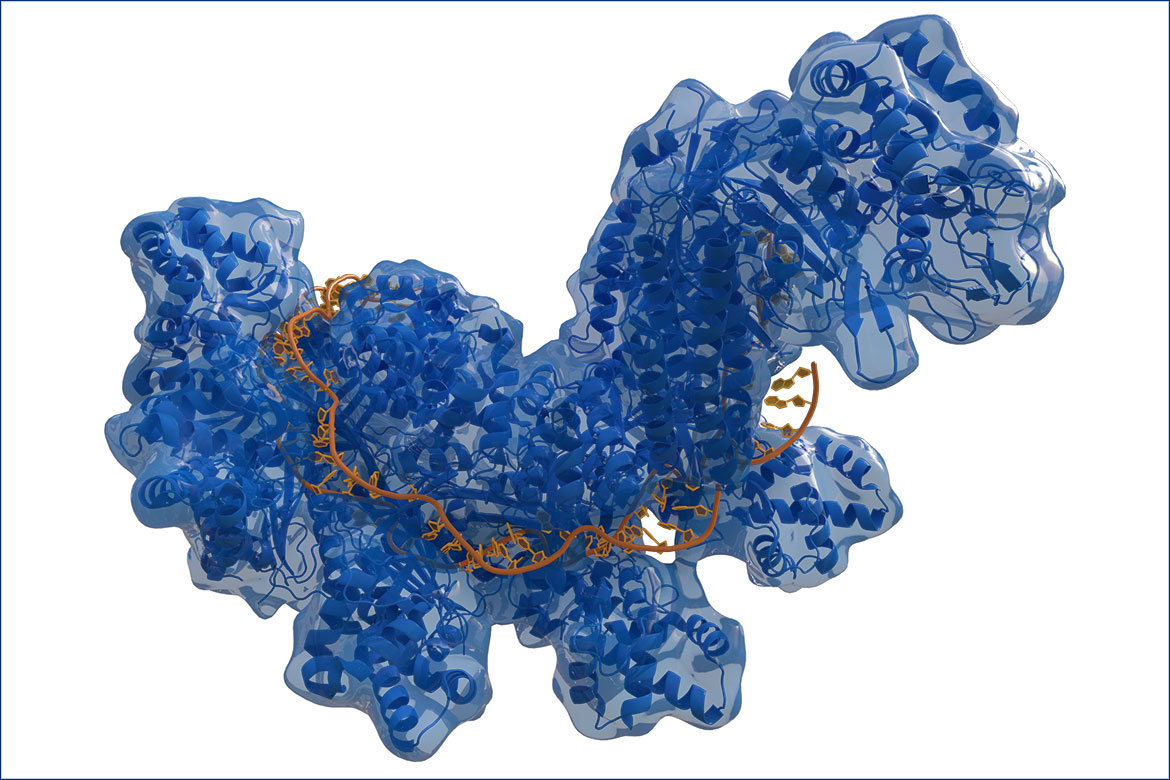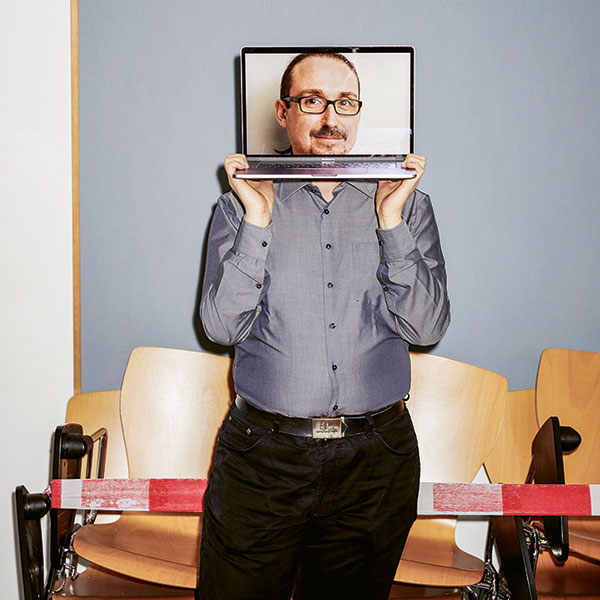PATENT LAW
Never-ending dispute
Who was first? Two labs have been arguing for years about who invented CRISPR-Cas9, and things are only getting more complicated.

Bacteria use this CRISPR molecule to defend themselves against viruses. It could be useful in many therapies, which is why it’s now the subject of a bitter patent dispute. | Illustration: Thomas Splettstoesser
The new technology called CRISPR-Cas9, which can be used to rewrite specific genes, will soon be ready for the market. The Swiss company CRISPR Therapeutics, based in Zug, is already busy with initial clinical studies to test therapies using these gene scissors. But it still has not been determined who actually holds the rights to the relevant patents. Two laboratories are fighting over them. The US Patent Office has assigned priority to the Broad Institute of MIT and Harvard, while the European Patent Office has decided in favour of the laboratory of Nobel laureates Jennifer Doudna and Emmanuelle Charpentier of the University of California at Berkeley, on account of a formal error by the Broad Institute. Two further companies are also now filing claims, making the matter even more complicated. Catherine Coombes, a lawyer at the intellectual property law firm Murgitroyd in York (UK), has told the journal Nature: “This could be going on for years. Many years”.




